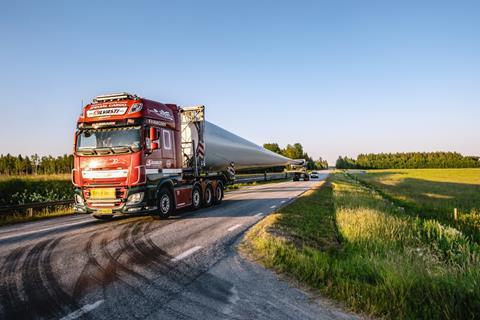The European association of abnormal road transport and mobile cranes (ESTA) fears that the heavy road transport crisis in Germany is getting worse, despite assurances from regional and national authorities that they are responding to the industry’s concerns.

ESTA warns that the country’s system for regulating heavy and abnormal transports is facing near collapse due to the lengthy and growing delays in obtaining permits. It stressed that while companies in Germany are most severely affected, the problems are badly impacting a great many international operations doing business in the country with Germany’s huge manufacturing base.
ESTA director Ton Klijn said: “We have been told that a large percentage of abnormal loads in Germany are being forced to travel without a permit because obtaining one is almost impossible within a reasonable timescale.”
The issue was discussed at length by the ESTA board in September as members from around Europe expressed their concerns. The meeting heard that permits for the delivery of wind turbines can take between three to six months to obtain, increasing costs and delaying projects in one of the key industries for Europe’s net-zero target. One exasperated company head said: “Even a permit to allow a simple crane to travel from A to B can take three to four weeks to obtain.”
ESTA said that the roots of the problem are failing regulatory systems combined with the very poor state of Germany’s roads and bridges which means abnormal transports have to take circuitous and over-long routes to their destinations – if indeed they are allowed to travel at all. “The effects of the infrastructure problems, especially the dilapidated bridge structures, are manifold. Many bridge structures may not be used by our heavy transports, so there is virtually no route for our equipment that we can take directly without detours,” said a manager in one leading construction equipment manufacturer.
He added: “And if we do find a route, it may usually only be used under certain conditions. These include, for example, driving time restrictions and mandatory escorts by civilian escort vehicles or the police. Here, too, we notice that the conditions imposed are increasing.”
ESTA’s Klijn continued: “We have previously considered whether Brussels could intervene with the Germany authorities, but to date we have been told they regard the issue as an internal German affair. We appreciate the position of the authorities, but we hope that they will reconsider when they realise the damage the current situation is doing to Europe’s economy as a whole.”
While ESTA noted that fixing German infrastructure will take time, heavy and abnormal transports companies regard the German bureaucracy as over-zealous and completely unnecessary. Drivers of a single abnormal load often have to deal with anything from 100 to 300 pages of paperwork. A further factor has been the increasing number of voices insisting that greater use is made of the canals and railways for heavy loads – demands that are well-meaning but impractical and often will not have the environmental benefits their proponents hope for.
“Many railway systems are already at or near capacity and abnormal loads are often too large to go through the existing railway tunnels and canal locks. What is more, each load has to be taken to and lifted onto the barge or wagon, and then unloaded and transported by road to the final destination,” said Klijn. “Using water and rail instead of the roads might make sense in some circumstances but will not be a simple solution – and certainly cannot replace proper investment in roads and bridges.
“The fundamental issue is that too many of our political leaders simply do not understand the importance of an industry such as ours, the urgency of the situation and what our members require for heavy transport operations to be safe and efficient.”
















